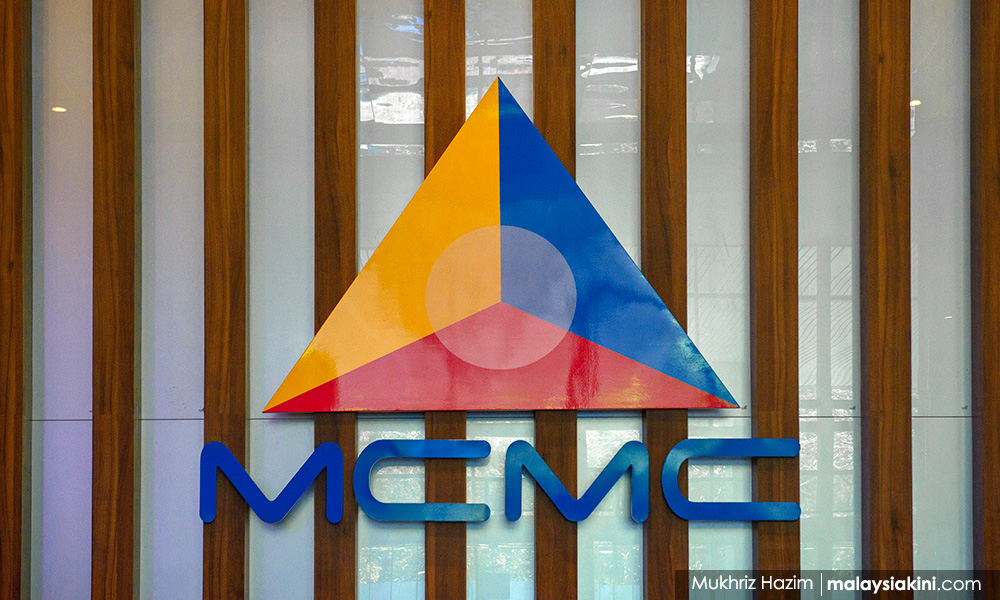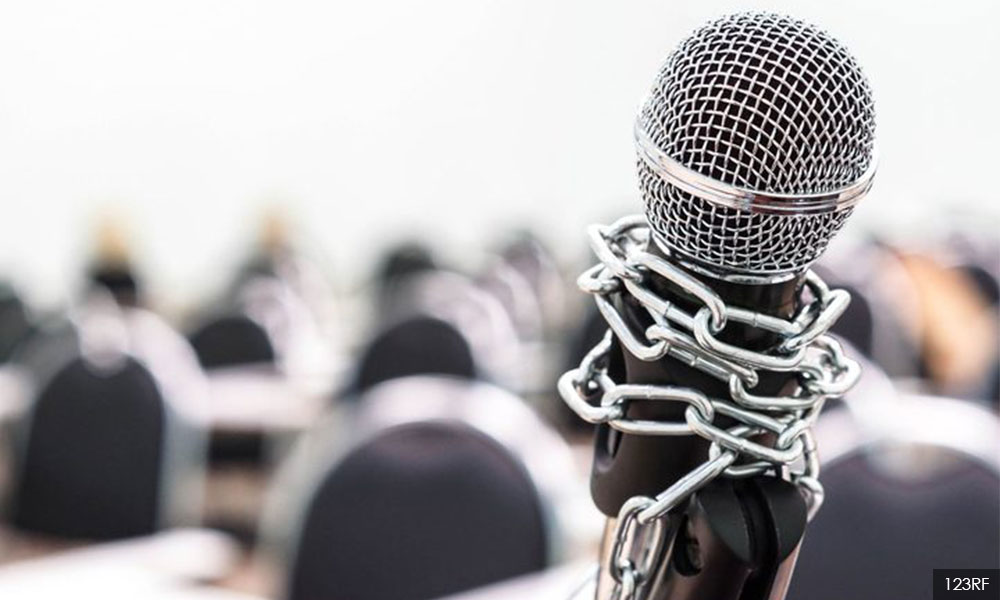“If you’re writing something that doesn’t offend anyone, then you’re probably writing bad work.”
- Lionel Shriver, New York Times bestselling author
Like Shriver, many scribes perfected into an art, saying what many others were too afraid to say, especially when 1MDB and then prime minister Najib Abdul Razak were making headlines around the world.
When news of his involvement in the 1MDB was reported by foreign news organisations in 2014, labels were attached to Malaysian media outlets and journalists who quoted them or were followed up upon.
It was a case of you're damned if you do and damned if you don't. And some paid dearly for it with their liberty - being detained by the police.
The majority queued up behind the government, denying the foreign news reports and singing praises of Najib and the government - subsequently becoming his mouthpiece.
The highlight of this “Najib is clean” campaign was the TV appearance of three senior editors, who were shown holding pieces of paper and asking questions from them - an obvious sign that the whole show was scripted.
Not many believed them but at the end of the day, they had done their duties - show Najib in a good light but failed miserably in sending the message that the MDB scandal was a figment of imagination by the opposition.
‘Big Brother’
But then, “Big Brother” stepped in. Journalists were arrested, news portals and blogs were blocked and the licences of newspapers were suspended - just for writing about the billion-ringgit scandal.
Propagandists, masquerading as government officials espoused the non-existent theory that “foreigners are working towards overthrowing a democratically elected government”.

All these are under the bridge. Malaysians have been learning of the alleged misdeeds of Najib and his associates through the proceedings in court which were and still is being dutifully reported.
Before the general election in November last year, as opposition leader, Anwar Ibrahim expressed concern at attempts to intimidate journalists and interfere in the operation of the free press in Malaysia.
“This government led by Umno and Bersatu is eager to return the country to a period when the absence of media freedom allowed mega-scandals such as the Port Klang Free Zone (PKFZ), 1MDB, and the littoral combat ship fiasco to take place, leading to the loss of billions of ringgit of public funds.
“Malaysians will recall that in 2015, The Edge was banned for three months for its reporting on 1MBD,” he had said in a statement in September last year.
A week after Anwar assumed office last November, I wrote: “Now, with a new government and a new prime minister who has promised openness and accountability, the media should ensure that similar shenanigans will not be repeated and the people will not have to be burdened by the theft of public money.
“We have seen several journalists pandering to the newbies in government but if similar corrupt incidents surface and if the instruments of the state are misused, they have a duty to tell the truth. Let not history repeat itself.”
Media under attack
As late as May, at the National Journalists’ Day celebrations, Anwar drove home that point: Journalists should have no fear of criticising the government and promoting views even when they oppose government policies. He said he encouraged the media to get rid of the old culture of writing in favour of the ruling government.
However, less than three months later, the media and journalists were under attack again - some websites and blogs were blocked.
Those affected include MalaysiaNow, UtusanTV, and TV Pertiwi.
This is despite a pledge by Communications and Digital Minister Fahmi Fadzil that news websites will not be blocked pending investigations.

The Malaysian Communications and Multimedia Commission (MCMC) which comes under the purview of the same ministry justified its actions by saying that one of its primary legal duties is to ensure that online platforms are not used for the commission or attempted commission of any offence.
“In recent times, there has been an alarming increase in news reporting which lacks responsibility, sensibility, and accuracy. Some of the news outlets have been found responsible for spreading misleading information or intentionally publishing inaccurate content,” it said.
But why is the MCMC playing the role of judge, jury and executioner? Aren’t there laws in place to take care of the publication of such news?
There’s the Sedition Act, the Penal Code and the often-used Communications and Multimedia Act 1998.
Section 233 stipulates offences of using network facilities to transmit communication deemed to be offensive or could cause annoyance to another person.
Why then is the MCMC arbitrarily blocking websites even before investigations are complete?
Drastic move
Alarmed at such actions, a group of concerned veteran media professionals last month criticised the MCMC for blocking online news publications and questioning journalists, which they claim is being done arbitrarily.
“We absolutely cannot accept any attempts to use government agencies like the MCMC to question, censor, or block portals and online news content,” they said in a statement today.
“We have seen how previous administrations, even on the basis of minor complaints from the public or ruling elites, have taken swift action even though such action is completely unwarranted,” they said in a statement.
What is of grave worry and anxiety is that many of the blocked content said are merely reports or opinions that are considered critical against the government.
Instead of correcting the so-called reports as they have done previously, they have resorted to such drastic moves.
Not everything is hunky-dory with the internet where one with a smartphone or a personal computer can cause hatred and spread misinformation at the touch of a button.
Yes, they have to be addressed but what has been done effectively by the police is to prosecute the offenders by going through the process – investigating and producing them in a court of law.

The MCMC’s use or misuse of its powers is not the answer to curbing fake or false news proliferation. Instead, concerted efforts must be made to correct and put right if there have been false assertions.
The act of blocking websites and news portals does not augur well in a democratic society where freedom of expression is inherently guaranteed in the federal Constitution.
Why are we going back to the bad old days when the government decided what Malaysians should read or know? Were the promises made by the prime minister and his colleagues just empty promises just to win votes? - Mkini
R NADESWARAN is a veteran journalist who writes on bread-and-butter issues. Comments: citizen.nades22@gmail.com.
The views expressed here are those of the author/contributor and do not necessarily represent the views of MMKtT.

No comments:
Post a Comment
Note: Only a member of this blog may post a comment.